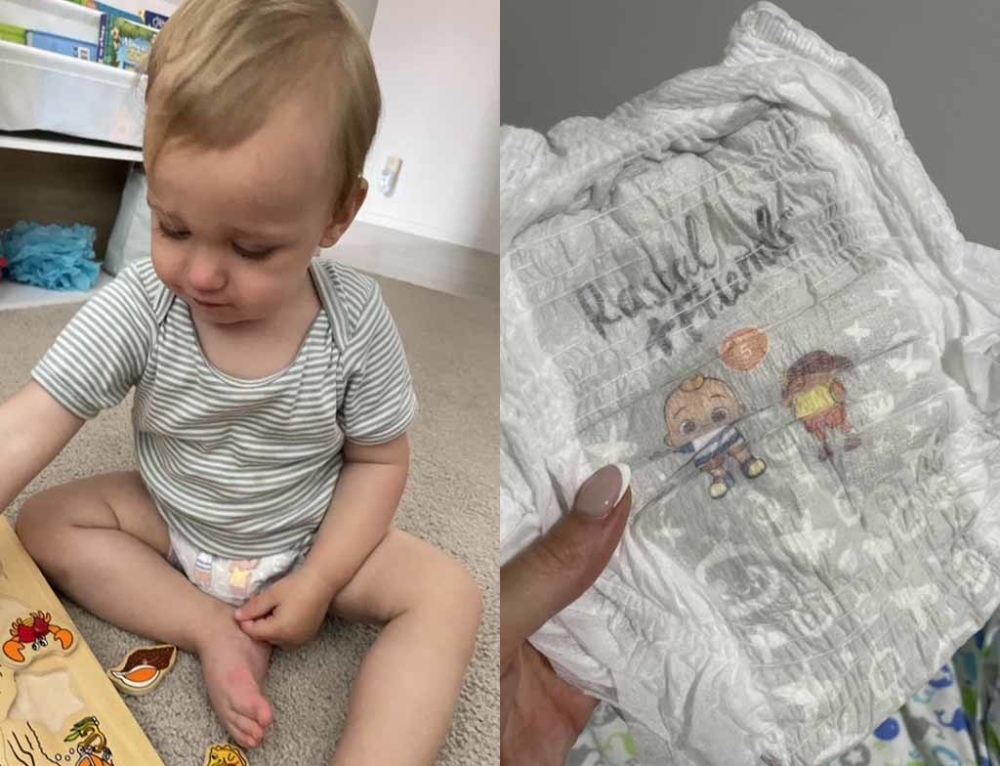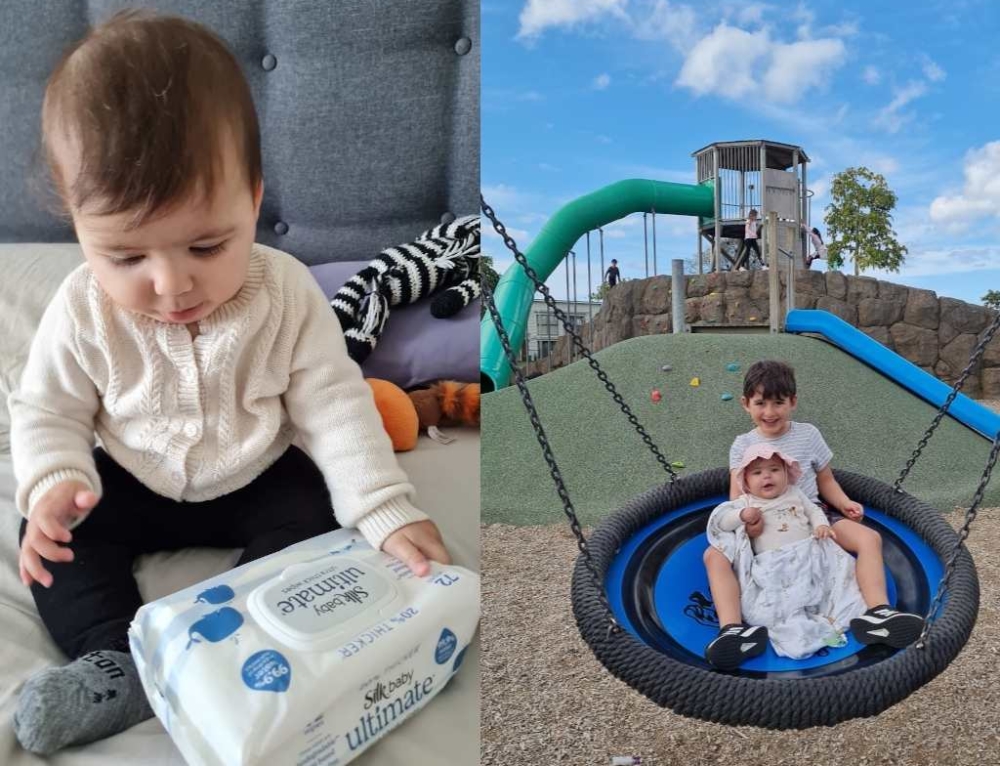Reflux is known medically as Gastro-Oesophageal Reflux (GOR) and describes the regurgitation of stomach contents back up into your baby’s oesophagus, which usually leads to vomiting.
What is the oesophagus?
The oesophagus is sometimes also called the gullet and is a long, muscular tube that connects the top part of your baby’s stomach to her mouth. Reflux is common in babies because they often have an immature relaxation of the muscle valve that separates the top of the stomach from their oesophagus. Instead of being tightly closed after allowing food and liquids pass through, the muscle valve remains loosely open – which allows for the stomach contents to come back up from your baby’s stomach. Vomiting associated with reflux usually occurs within the first hour after feeding.
For most babies, reflux is untroubling – they vomit often and easily and never seem upset by it. This type of repeated regurgitation of milk is called posseting, and is grown out of without the need of any medical assistance.
Who gets relfux?
About 8% of newborn babies – premature babies are particularly prone – experience the excessive vomiting of relfux, which can lead to health conditions, or Silent reflux, which is similar to heartburn or indegestion.
Recognising the signs of reflux can be difficult, particularly as reflux symptoms can also combine with colic and/or wind to create a very unhappy baby experiencing a variety of symptoms. Reflux generally falls into one of three categories and understanding these will make it easier to help your baby and manage her reflux:
Normal reflux
The term ‘normal reflux’ can be used to describe most babies who experience reflux. Babies with ‘normal reflux’ are often described as ‘happy chuckers’. These babies continue to thrive and put on weight, but just frequently provide their parents with a mess of vomit to clean up along the way!
A baby with normal reflux can vomit up small puddles, or dribbles during and after each feed, when she is lying down, or even when she is crawling. Reflux vomiting may also be the dramatic ‘projectile’ vomits that comes up as a gush, and does a great job of soaking everything and everyone nearby.
Generally, your baby will naturally outgrow her reflux, as the stomach valve matures and strengthens. The vomiting usually peaking at about 4 months of age, and stopping completely between 6-12 months old. Reflux also usually improves once your baby eats more solids and less milk and spends more time in an upright position – when she is sitting and later, walking.
Silent reflux
Silent reflux describes the type of relfux where your baby experiences pain and some symptoms, due to heartburn but doesn’t actually vomit. Some babies begin life vomiting more, but even when this lessens as they become more upright in their posture, their stomach contents and acid still regurgitate back up into their oesophagus many times a day, causing a burning sensation and pain.
The pain from silent reflux usually occurs 60-90 minutes after your baby has had a feed – this is the time when her stomach normally undergoes an increase in pressure, to allow food to move from the stomach into the intestines for absorption. But instead of all the stomach contents going into the bowel, some is allowed by the weak stomach muscle valve to be forced back up into the oesophagus. If your baby is sleeping, the pain associated with this will often cause her to wake crying, with some babies becoming very distressed, and hard to comfort and resettle again. If your baby has silent reflux, she may cry inconsolably. Her body may become quite tense and she may arch her back in pain.
Excessive reflux
For a few babies, at some point oesophageal reflux becomes excessive, to the point that it starts to affect their health. Excessive reflux is usually related to the frequency and severity of reflux episodes. If your baby’s reflux becomes severe, for a prolonged period of time, it may possibly lead to her experiencing some of the following health problems, including:
- Weight loss. An insufficient intake of calories to maintain adequate nutrition. The continual, large vomiting after every meal can mean that there is an insufficient intake of caloriesto maintain adequate nutrition. This can reult in ‘failure to thrive’.
- Oesophagitis. Inflammation and/or bleeding of the oesophagus can sometimes lead to your baby vomiting up small amounts of bright blood, or old ‘coffee-ground’ coloured blood, mixed in with their vomit. (Don’t confuse this with regurgitated blood your baby may have swallowed if you have cracked or bleeding nipples) If this is a long-term problem, oesophagitis can lead to the scarring and narrowing of the oesophagus.
- Lung problems. If your baby is continually vomiting, sometimes small amounts of the vomit can make its way into your baby’s lungs. This may lead to the her having an ongoing cough, ‘wheezing’ when breathing, a hoarse sounding cry, recurrent episodes of bronchitis or possibly even pneumonia.
- Behaviour changes in your baby. If your baby continues to suffer from reflux, she may begin to arch her back, stiffen her body or throw her head back in pain, refuse to feed or push the bottle or breast away – these behaviour changes can be a result of associating feeding with pain.
This article was written for Kidspot and is based on an article that appears on www.birth.com.au.
Find more rleated articles and information:
- Get advice on how to feed your reflux baby
- Discover why your newborn is vomiting?
- Learn about hiccups-sneezing-and-other-breathing-noises






I had two happy spillers. So I was very lucky in that they were okay, no bad nights due to reflux really. But we still had to deal with a lot of vomit. And multiple changes of clothes for us all. It was all over around 8 months old, thank goodness.
I have reflux as an adult and I know how uncomfortable it is. I hate to think of a little baby going through this discomfort and as a parent it is so hard seeing your child in distress.
I have heard that silent reflux can be hard to be aware of especially if you have not heard of it and caused many sleepless nights before being diagnosed.
My daughter suffered from colic and a mild case of reflux as a wee baby – it was awful and upset her sleeping during the day (not to mention everyone else haha) and caused her grief. Was not nice having to watch her suffer, a friend of ours who is a natural healer helped by showing us massage and relaxation techniques for her and they made a difference